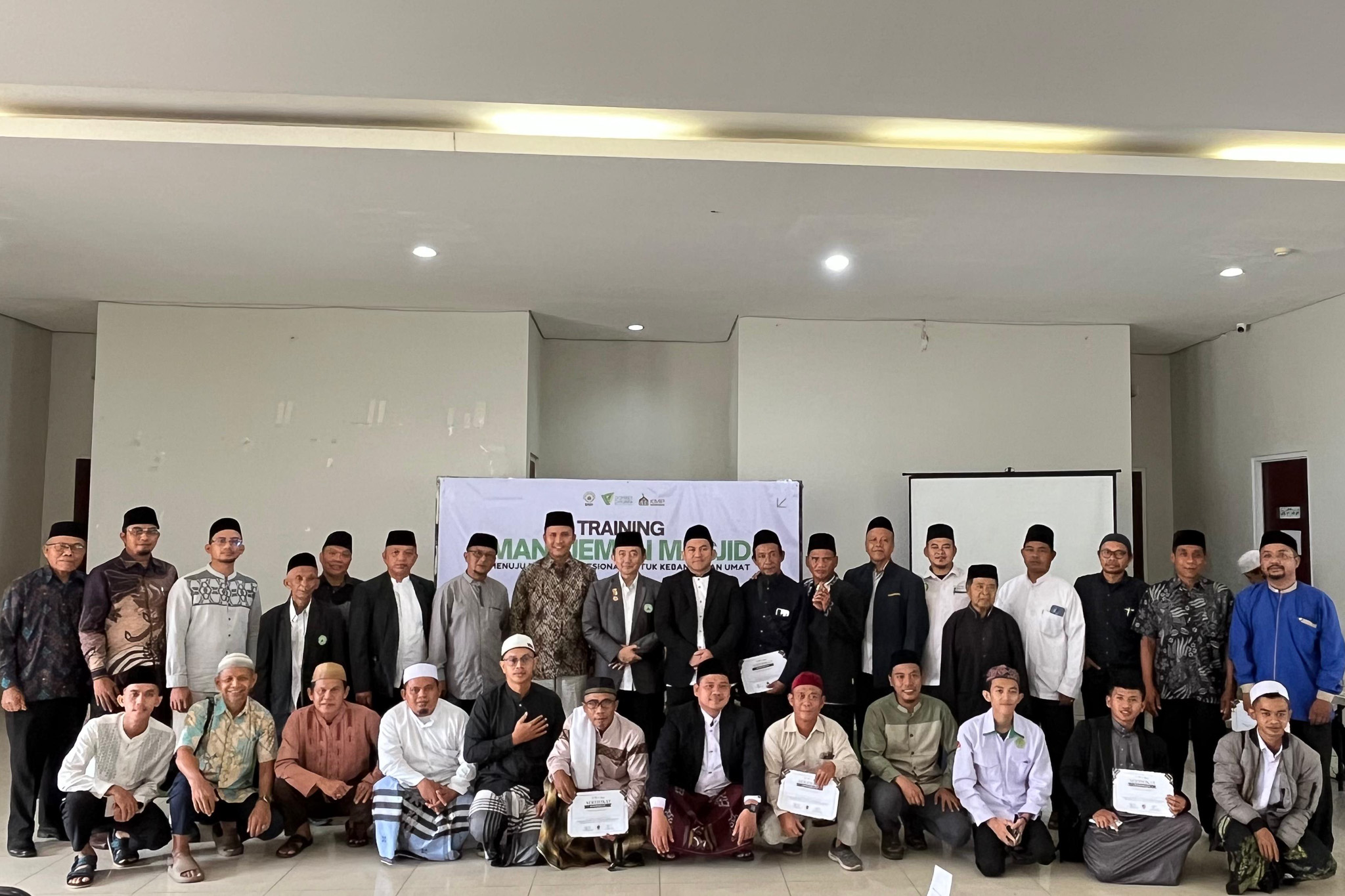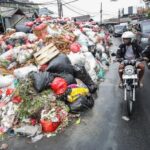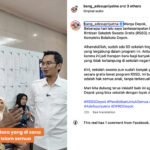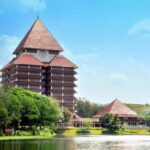Mosques, as centers of worship and Islamic outreach, play a crucial role in the lives of the Muslim community. However, in facing the dynamics of modern times, many mosques are still managed traditionally, making their functions less optimal and less appealing to congregations, especially the younger generation.
Challenges such as unorganized administrative management, limited human resources, and a lack of program innovation often become obstacles.
In the minds of many, mosques may still be associated with large carpeted halls where the call to prayer is heard, only to be left empty after congregational prayers. But in the Zona Madina complex owned by Dompet Dhuafa, the concept of mosques is being reimagined.
A mosque management training session was held not to discuss fixing speakers or scheduling caretakers, but to address something much larger—the future of the Muslim civilization.
Recognizing this urgency, Al-Madinah Mosque in Dompet Dhuafa’s Zona Madina took strategic action by organizing a “Mosque Management Training” on July 30, 2025. The training carried the theme “Towards a More Professional Mosque for the Revival of the Ummah.”
Its primary goal was to equip mosque administrators and managers with the knowledge, skills, and attitudes needed to manage mosques in a modern, efficient, and accountable manner.
The event featured three speakers from various fields with extensive experience in mosque management and Islamic outreach. The participants? Mosque administrators, managers, and community representatives who form the backbone of mosque operations in their respective regions.
Addressing Modern Challenges Through Training
If asked about the main issue in mosque management today, answers may vary. But one common thread is the persistence of traditional management approaches. Many mosques still rely on old mindsets—having administrators, ablution facilities, and congregational prayers is considered sufficient. However, times have changed. The challenges faced by the community are different, and congregational needs are more complex.
Mosque administrators are now expected to possess administrative, managerial, public communication, and technological adaptation skills. Unfortunately, not all mosque administrators have this background. “Many mosque administrators have incredible enthusiasm but lack sufficient knowledge. This ultimately affects the effectiveness of mosque management,” said one of the speakers.
The first speaker delivered a session on “Professionalism in Mosque Management.” At the outset, they emphasized that the term “professional” should not be feared—it is not about commercializing worship spaces or paying salaries. Professionalism, they explained, is about commitment, accountability, and clear direction.
“A mosque is an organization. It has assets, congregations, programs, and goals. Therefore, its management should also follow organizational principles—with systems, structures, and reporting,” they explained.
They also listed indicators of a professionally managed mosque: transparent financial reports, measurable work programs, an active congregation database, and friendly, inclusive services. “If young people are absent from mosques, it’s not their fault. It might be because our programs don’t engage them,” they added.
Mosques Are Not Alone: The Need for Collaboration
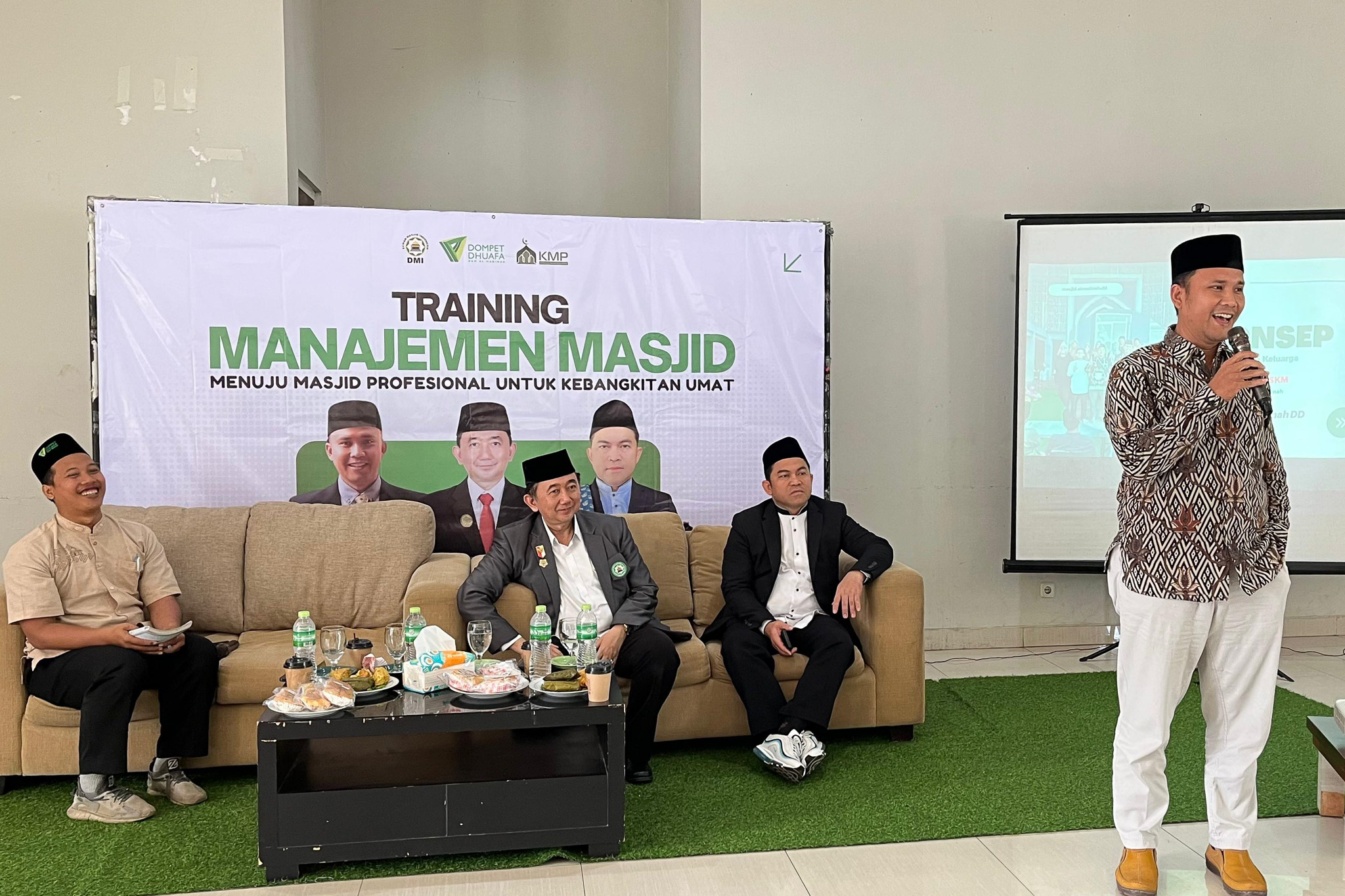
The second session was equally engaging. The speaker discussed “Relationships and Collaboration Between Mosques.” They noted that many mosques today operate in isolation, when in fact, collaboration is key in facing modern challenges.
They gave examples of how mosques could support each other in programs, logistics, and even outreach efforts. “Imagine if one mosque has a parenting expert and another has literacy volunteers—they could collaborate on joint programs. The impact would be tremendous,” they said with a smile.
They encouraged participants to think beyond their local communities and build networks. The spirit of congregation, they argued, should extend beyond prayer rows to mosque management as well.
The final session was led by a figure directly involved in managing Al-Madinah Mosque, where the training took place. Their presentation, titled “The Concept of a Family-Friendly Mosque,” touched on emotional aspects.
“Mosques are not just for men. They should be spaces for collective growth—welcoming breastfeeding mothers, children, and the elderly,” they said.
They shared how Al-Madinah Mosque had improved by adding congregation lockers, children’s play areas, breastfeeding rooms, and elderly-friendly restrooms. These were not extravagant projects but efforts to make mosques welcoming spaces for all.
A total of 55 participants attended the training, coming from various parts of Bogor with remarkable enthusiasm. Discussions were lively, ideas flourished,

